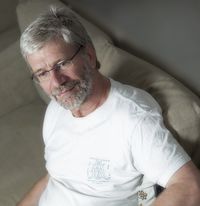|
Heiner Benking is a strong supporter of structured dialogue and of Future Worlds Center. He has been collaborating with Aleco Christakis and many of the historic figures who have pioneered in the establishment of the science of dialogic design. He has attended the 3rd International SDDP Facilitators Training School, which he has promoted publishing articles, such as the Commentary about the 3rd International Training School for SDD. He has also written an article following an interview he has taken from Aleco Christakis during the schoolCite error: Invalid <ref> tag; refs with no name must have content
Heiner Benking is part of the Millennium Project of the American Council for the United Nations University (AC/UNU) and worked with Experconsult and technology think- tanks like the Research Institute for Applied Knowledge Processing (FAW) in Ulm, Germany and The Club of Budapest. He is a technician, engineer, planner, consultant, communicator and facilitator with an academic background in engineering, planning and other studies ranging from geophysics to philosophy and including regional and global modeling geo-ecology and geomorphology, and computer graphics programming. Benking has served as a consultant and facilitator, writer, curator, and organizer.
He began using maps and models 1970s as a surveyor and geophysicist in exploration and planning on a regional and national level. In the 1980s he explored the realms of mapping and modelling further by using drafting, visualization and management software. Benking participated in several global change related gatherings, exhibitions, and conferences from 1988-1995, in particular the 1990 Global Change exhibition where he helped design posters and exhibits.
In the past ten years Benking has focussed on education and policy-making. This has led to new forms of conferencing, dialogue and projects in knowledge organization, multi-lingual repositories, metaphors as interface projects, and culture navigation - defining reference rooms for library and museum information concepts. His activity areas range from Future studies to questions related to culture, cyberculture, creativity and cognition.
